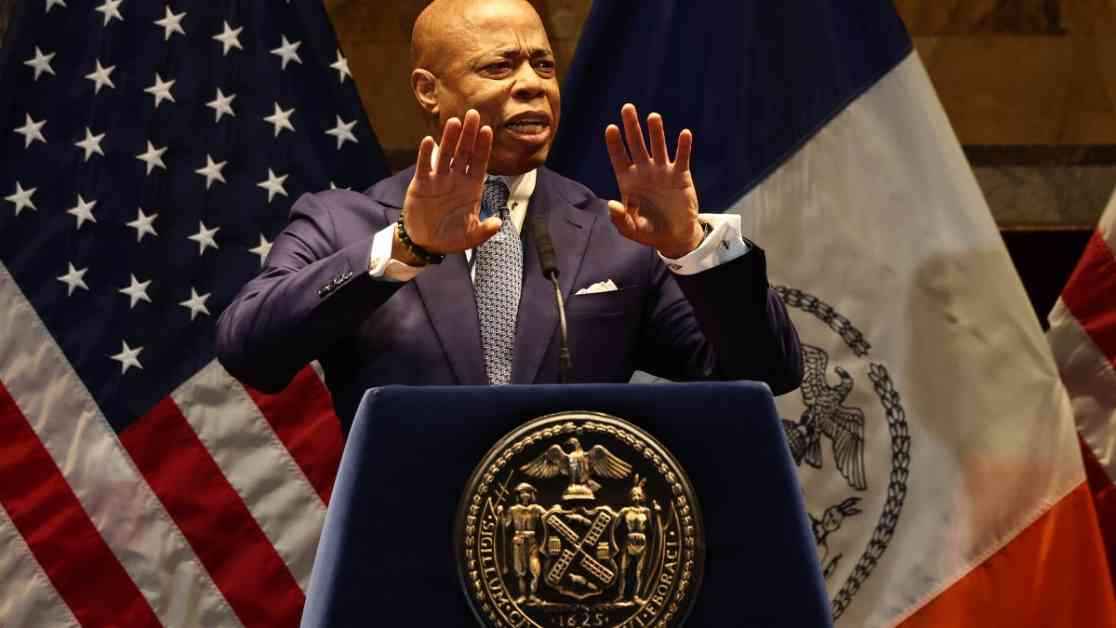New York City Mayor Eric Adams, a prominent figure in local and national politics, has recently found himself at the center of a high-profile legal case. The Department of Justice, under the guidance of Acting U.S. Deputy Attorney General Emil Bove, has taken the extraordinary step of ordering the dismissal of corruption charges against Mayor Adams. This decision has raised eyebrows and fueled debate, as it deviates significantly from traditional Justice Department protocols.
Unprecedented Decision Sparks Controversy
The dismissal of the corruption charges against Mayor Adams has set off a firestorm of reactions from various quarters, shedding light on the complexities of political and legal wrangling at the highest levels of government. Acting U.S. Deputy Attorney General Emil Bove’s rationale for this decision was outlined in a two-page memo, where he argued that the prosecution was impeding Mayor Adams’ ability to address critical issues such as illegal immigration and violent crime. The move to drop the charges without prejudice indicates that the case may not be entirely closed, leaving room for future review and potential reinstatement.
Political Fallout and Public Backlash
Despite the dismissal of the charges, political opponents and critics of Mayor Adams have been swift to condemn the DOJ’s decision. State Sen. Zellnor Myrie, a Democrat challenging Adams in the mayoral primary, expressed outrage at the perceived lack of accountability and justice in the case. The tension and controversy surrounding this high-profile legal saga have underscored the complexities and challenges of governance in a highly charged political environment.
Throughout the unfolding legal drama, Mayor Adams has maintained his innocence and steadfastly proclaimed his belief in justice prevailing. His legal team, led by attorney Alex Spiro, has staunchly defended him, emphasizing the lack of substantial evidence and the absence of any wrongdoing on the mayor’s part. The intricacies of the case, involving allegations of luxury travel perks and illegal campaign contributions, have added layers of complexity to an already convoluted legal landscape.
The decision to dismiss the corruption charges against Mayor Adams has raised significant questions about the intersection of power, politics, and justice in contemporary society. As the legal saga continues to unfold, the implications for Mayor Adams and the broader political landscape remain uncertain. The complexities and controversies surrounding this case serve as a stark reminder of the intricate web of relationships and interests that shape the world of politics and law.
In conclusion, the dismissal of corruption charges against Mayor Eric Adams has sparked a maelstrom of debate and controversy, highlighting the intricate interplay between power, politics, and justice in modern society. The unfolding legal drama surrounding Mayor Adams underscores the challenges and complexities of governance in a highly charged political environment, where accountability and transparency are often elusive. As the case evolves and new details emerge, the broader implications for Mayor Adams and the political landscape remain uncertain. The intricacies and controversies surrounding this high-profile legal saga offer a window into the intricate web of relationships and interests that define the world of politics and law.


